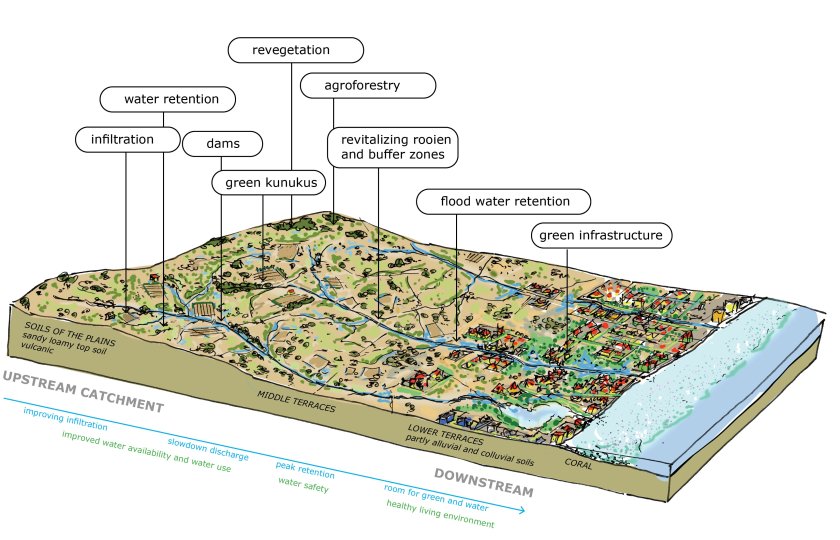
Project
Nature-based Solutions for flood resilience on Bonaire
Tackling urban flooding and the impact of heavy rainfall on Bonaire requires an integral approach with hybrid solutions. Restoring and revitalizing the natural system of Bonaire with Nature-based Solutions has potential.
A period of extreme rainfall in November 2022 disrupted the society on Bonaire for days. Streets were flooded in Kralendijk for extended periods and runoff water mixed with pollutants and sewage, threatened coral reefs around the island. This impact fits into a trend noticed on other Caribbean islands as well.
Nature-based Solutions to reduce future environmental impacts
The World Wide Fund for Nature Netherlands (WWF-NL) asked Wageningen Environmental Research (WENR) to carry out a scoping study to assess the weather impact and explore the potential of Nature-based Solutions (NbS) to reduce future environmental impacts from extreme weather events and improve flood resilience.
Investigating the system
Existing data was collected, literature was reviewed and on-site interviews were conducted on Bonaire with different types of stakeholders. By investigating the system and its hydrological, ecological and socio-economic components; we described a ‘pathway to impact’ of the up- and downstream processes that increase the risk of flooding.
Greening and water retention
NbS implementations can support in ameliorating flood resilience on Bonaire. Upstream revegetation, greening of kunukus and water retention help to improve infiltration and to slow down runoff. In addition, revitalization of rooien and buffer zones can slow down discharge and reduce flood peaks. Room for green infrastructure and water creates a more safe and healthy living environment in the urban area of Kralendijk downstream.

Potential
Restoring and revitalizing the natural system on Bonaire has potential. The scoping study can be seen as a preparation for a more in-depth analysis of NbS implementation on Bonaire and to find the most suitable locations. We recommend implementing a transition design process where different stakeholders, policy makers and local communities are involved to support with the implementation of NbS and to achieve impact of the proposed measurements.